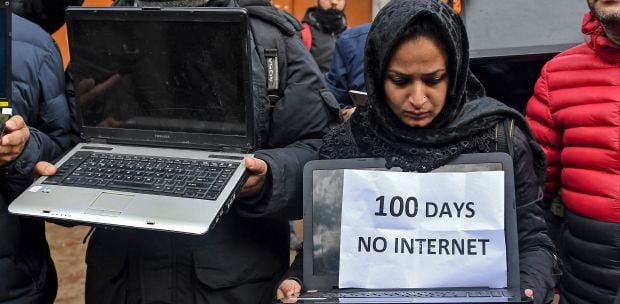THERE is no doubt that the plundering and pillaging of natural resources have impacted the environment adversely.
Where and when the want of human beings outweighs a sense of obligation towards flora and fauna, is where and when the world suffers.
Human greed is nothing new, but its modern manifestation, infused with the absolutist doctrines of scientism, continues to have a devastating effect.
Jointly published by the Centre for Civilisational Dialogue Universiti Malaya and the Islamic Book Trust, the revised second edition of "Environmental Wisdom for Planet Earth: The Islamic Heritage" is an effort by Professor Datuk Dr Osman Bakar to highlight our shared responsibility in protecting the environment; that we are very much part of the natural world and not separate from it.
The holder of (the) Al-Ghazali Chair of Epistemology and Civilisational Studies and Renewal at the International Institute of Islamic Thought and Civilisation, International Islamic University Malaysia, also contends that the Western world and its reductionistic vision of the natural order have brought about much harm to this planet.
This is not to assign blame without recourse, but to hold those with assumed authority and power accountable.
At the core of our predicament is the desacralisation of nature, with its inherent sanctity stripped away and laid bare.
Osman argues that this stance runs counter to the ecological wisdom taught and preserved as an integral component of the Islamic faith.
Muslims believe human beings are custodians of Earth, and that we are all His vicegerents duty bound in preserving its balance (see Al-Baqarah, verse 30, https://legacy.quran.com/2/30).
Environmental consciousness in Islam developed in tandem with the spiritual realisation of divine unity that is so pertinent to Islamic life and thought.
This cognisance ought to be a catalyst for maintaining order in the natural world, as opposed to being agents of disorder and discord. We seem to forget that the resources available to us are of a finite amount.
We continue to repeat the mistakes that the industrialised West made earlier, in viewing (and unfortunately, believing) the natural world as a means to an end rather than an end in itself.
We cannot deny the fact that the race for industrialisation is very much a Western import synchronically in line with the colonialisation process (as well as post-colonial praxis) that most of the Third World experienced.
There is widespread desire to conquer nature, but in the process itself, the value of the conquerors is diminished and their very existence threatened.
The aforementioned desire (domination over nature) is the root of the problem, which then mutates into issues of overpopulation, the lack of breathing space, congestion of city life, and the ubiquitous destruction of natural beauty and splendour.
Closer to home, we witnessed the devastating effects of flash floods and other disasters. This comes not by accident (though everything that happens has been decreed by Him), but by mismanagement due to ineptitude, and a lack of foresight when it comes to town planning.
It is argued here that although such events are deemed natural disasters, there are many instances whereby their magnitude and impact are dependent on human intervention.
It is ludicrous that those in power have to be reminded about the gravity of our situation. Instead of continuing to approve logging concessions as a source of state revenue, state governments should secure financing to preserve their forests.
This move is one of the practical lessons that can be applied from the theoretical framework discussed in the text.
Other bold responses to the environmental and ethical challenges confronting humanity are necessary.
This book would appeal to the public as it is a relevant topic, and is written in an approachable and concise manner, with academic jargon kept to a minimum.
For those interested in studies on the environment from the lens of religious tradition, this book can be used as preliminary reading before embarking on extended research.
We need to plant in our minds that there is no refund in the absurd transaction of our planet for assumed profit, pride and prestige.
Our actions now (or the lack thereof) will have a tremendous bearing on the lives of our children and their children.
We owe it to them, and this debt is only paid by being accountable to ourselves now.
The writer is a former research assistant for the Political Futures Experts Group at the International Institute of Islamic Thought and Civilisation





